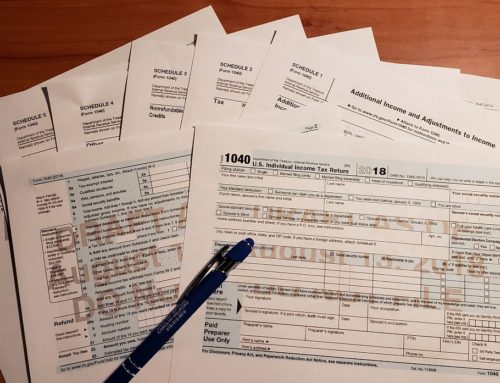Reporting Taxes as An Independent Contractor

Photo from Pixels.com
Deciding to start your own business was a hard-enough decision, but did you think it through? What does it mean to be self-employed?
It means you work for yourself. You own your own business, you make your own decisions, and you do all the work, or you hire someone to do it.
It also means, you are responsible for keeping track of all your business transactions. You will need to keep your books in order so you can do your taxes at the end of the year, you’ll find that taxes are different.
In this article, you’ll find out what an Independent Contractor is and what you must do to maintain your business.
What Is an Independent Contractor?
An independent contractor is simply someone who works for someone else, but not as an employee. For income tax purposes, you are considered a sole proprietor. The designation of “sole proprietor” is the default form of small business. You don’t need to pay to register your business with your state or with the IRS, and you don’t need to incorporate (form a corporation).
How does an Independent Contractor get paid?
Once you contract business from someone or another business, you will bill (invoice) them. After payment is received the money goes into your Business Checking account (Yes you should keep a business and personal separate). You don’t get a salary from your business. You can take money out of the business when you need it (it’s called a “draw), but not a salary because you are an owner – not an employee.
The amount you take out as an owner doesn’t affect your taxes; you must pay tax on ALL the income of your business, whether you take it out or not. Because you aren’t an employee, the payments you receive from your business don’t have any federal income tax withholding taken from them, and there are no deductions for social security or Medicare.
This doesn’t mean you can get out of paying taxes, it just means you pay it in a different way. You will pay Federal and State income tax on all the income from your work as an independent contractor, through a business tax return. Social Security and Medicare taxes are also taken out from the return. The difference is, as an independent contractor you are responsible for both portions of Social Security and Medicare. The Employers portion and Employee Portion. This is called self-employment tax.
How Does Being a Sole Proprietor/Independent Contractor Work for Taxes?
When you prepare your personal income taxes, you will also prepare a form called a Schedule C, which lists your business income from all your contracted work, minus any expenses. Many Independent Contractors can file what’s called a Schedule C-EZ, in which you merely list your total income and summarize your expenses. It takes only minutes to complete.
What Expenses Can I Deduct as an Independent Contractor?
You must keep excellent records of all your expenses, this ensures that you don’t miss any deductions, plus you will need them in case of an audit. You can deduct typical business expenses that you have paid throughout the year.
Some examples of expenses you can deduct would be:
- Insurance
- Internet
- Cell Phones/Telephone used in business
- Tools
- Supplies
- Rent
- Equipment Rental
- Software
- Repairs and Maintenance
- Postage & Delivery
- Office Supplies
- Advertising
- Dues and Subscriptions
- Utilities
You want to take as many legitimate deductions as you can. But you must be able to prove that the money was spent and that it was for business purposes. The IRS says you can only deduct expenses that have a specific business purpose. If you want to deduct expenses, these expenses must be clearly for your business, not personal. Also, you must document the expenses with the date, amount, and business purpose.
You can utilize a bookkeeping software to keep track of your income and expenses or you can hire a bookkeeper to do the work for you.
When do I Have to Pay Taxes?
If your business has a profit, you might need to make estimated tax payments for your business taxes.
In most cases, you must pay estimated tax for 2019 if both of the following apply.
- You expect to owe at least $1,000 in tax for 2019, after subtracting your withholding and refundable credits.
- You expect your withholding and refundable credits to be less than the smaller of: a. 90% of the tax to be shown on your 2019 tax return, or b. 100% of the tax shown on your 2018 tax return. Your 2018 tax return must cover all 12 months.
For instructions on how to do quarterly estimated tax payments, you can go to this link. This will take you directly to the instructions. https://www.irs.gov/pub/irs-pdf/f1040es.pdf
First, see if you can increase the amount withheld from your pay from other income sources. If you don’t have any withholding amounts to adjust, you may need help to figure out whether you will have to pay estimated taxes on your income as an independent contractor. If you have income from the previous year, you can use that as a basis to calculate your estimated tax bill or work with a Tax Adviser.
How Can I Do My Taxes?
If you run a small business and don’t have many complicated items, you can prepare your own taxes by using an online tax software. Or if you’re not comfortable with doing it yourself or you have too many complicated issues, you can hire a Tax professional.
Will I Receive a W-2 for Income Tax Purposes?
Instead of receiving a W-2 in January of each year, you will receive a 1099-MISC form showing the total amount you earned from each client for whom you worked during that year. If your payments from any one client are less than $600, you won’t receive a 1099-MISC form, but you still must include the amount you were paid on your business tax return.
How Do I Pay Income Taxes on My Income as an Independent Contractor?
First, you must determine the net income from all your business activities. The income from your work as a sub-contractor is recorded on Schedule C. Income from your work as an Independent Contractor
is listed, then any deductions are taken, to get a net income number. This number is brought to Line 12 of your Form 1040. It gets added in with any other income, and then the tax is calculated on your total adjusted gross income.
Will I have State Income Taxes?
Most states have income taxes, and yes, you must pay those state income taxes on your income as an independent contractor.
How much Self-Employment Tax Will I owe?
The net income amount (the “profit”) from your Schedule C is to determine the amount of self-employment tax you owe. This calculation is done on Schedule SE. The result of this calculation is a tax amount which is added to the total income tax you must pay. Here is a link for instructions on how to calculate Self-Employment Taxes : https://www.irs.gov/pub/irs-pdf/i1040sse.pdf.
Please check us out for future posts.





